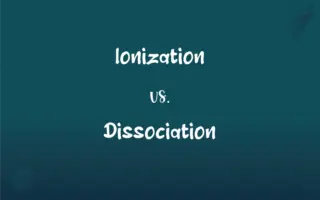Life Insurance vs. Health Insurance: What's the Difference?
Edited by Aimie Carlson || By Harlon Moss || Updated on October 25, 2023
Life insurance provides a monetary benefit upon death or after a set period. Health insurance covers medical expenses.

Key Differences
Life insurance is a contract between an individual and an insurance company where the individual pays regular premiums in exchange for a lump sum payment to their beneficiaries upon their death. Health insurance, on the other hand, is an agreement where the insurance company covers or reimburses medical expenses incurred by the insured individual.
Life insurance is primarily designed to provide financial security to the family members of the deceased. This ensures that in case of the policyholder's untimely death, their dependents are financially protected. Health insurance focuses on minimizing the financial burden of medical treatments, ensuring the policyholder can access necessary medical care without undue financial strain.
Life insurance policies can also act as a savings or investment tool, with options like whole life or universal life policies that have a cash value component. Health insurance doesn't have such an investment facet; its main goal is to provide coverage for medical services like doctor visits, surgeries, and prescription medications.
The premium for life insurance is generally determined by factors like the age, health condition, and life expectancy of the policyholder. For health insurance, the premium is influenced by factors like age, health history, and the level of coverage chosen.
While both life insurance and health insurance offer financial protection, their core purposes differ: life insurance safeguards against the financial implications of the policyholder's death, while health insurance safeguards against high medical costs.
ADVERTISEMENT
Comparison Chart
Purpose
Provides financial security upon death or after a set period.
Covers medical expenses.
Beneficiaries
Money is paid to named beneficiaries.
Benefits the insured during their lifetime.
Premium Determinants
Age, health condition, life expectancy.
Age, health history, level of coverage.
Investment Component
Can have an investment or savings aspect.
Typically doesn't have an investment component.
Coverage Duration
Can be term (specific period) or whole life (lifetime).
Typically renewed annually.
ADVERTISEMENT
Life Insurance and Health Insurance Definitions
Life Insurance
A policy where regular premiums result in a lump sum payout after a certain period or death.
Karen viewed her life insurance as both a safety net and a future investment.
Health Insurance
A policy covering medical expenses incurred by the insured.
Sarah's health insurance covered most of her hospital bill.
Life Insurance
An agreement offering monetary compensation to loved ones after the policyholder's demise.
Robert wanted life insurance to leave a legacy for his grandchildren.
Health Insurance
A provision ensuring access to medical care without significant out-of-pocket expenses.
The new medication was affordable, thanks to Jake's health insurance.
Life Insurance
A provision ensuring financial support to dependents in the event of the holder's passing.
As the sole breadwinner, Mike considered life insurance essential for his family's future.
Health Insurance
An agreement reimbursing or directly paying for medical treatments.
Without health insurance, Tom would've struggled to pay for his surgery.
Life Insurance
A protective financial tool offering a death benefit or maturity amount.
With life insurance, Lisa felt confident her children would be taken care of financially.
Health Insurance
A protective measure against high healthcare costs.
Maria valued her health insurance, especially with rising medical costs.
Life Insurance
A contract ensuring payment to beneficiaries upon the policyholder's death.
John purchased life insurance to ensure his family's financial stability after his passing.
Health Insurance
A contract helping individuals manage and mitigate the cost of health services.
After her accident, Nancy was relieved her health insurance covered the rehabilitation costs.
FAQs
Who receives the payout from a life insurance policy?
The named beneficiaries receive the payout from a life insurance policy.
What is the primary purpose of life insurance?
Life insurance primarily provides financial security to beneficiaries upon the policyholder's death.
Can life insurance have an investment component?
Yes, certain life insurance policies, like whole or universal life, have a cash value component that acts as an investment.
Can life insurance be used as collateral for a loan?
Yes, some life insurance policies with a cash value can be used as collateral for loans.
Can life insurance be purchased for a specific period?
Yes, term life insurance provides coverage for a specific period, like 10, 20, or 30 years.
Can pre-existing conditions affect health insurance premiums?
Yes, pre-existing conditions can influence health insurance premiums and coverage.
Are all medical procedures covered by health insurance?
Coverage varies by plan; not all procedures may be covered, and out-of-pocket costs can differ.
Does health insurance cover prescription medications?
Most health insurance policies cover prescription medications, but coverage can vary.
Can life insurance be converted from term to whole life?
Some term life insurance policies offer an option to convert to whole life insurance.
Is life insurance only beneficial after death?
While the primary purpose is a death benefit, certain policies offer living benefits or cash value components.
Do all health insurance plans cover surgeries?
While many health insurance plans cover surgeries, the extent of coverage can vary based on the plan.
Is the death benefit from life insurance taxable?
Generally, life insurance death benefits are not considered taxable income for the beneficiaries.
Are preventive services covered by health insurance?
Most health insurance plans in the U.S. cover preventive services without additional cost-sharing.
Can health insurance be used immediately after purchase?
Depending on the policy, there might be waiting periods for certain services, but many benefits start immediately.
How often is health insurance typically renewed?
Health insurance is typically renewed annually.
Can health insurance be purchased for families?
Yes, there are family health insurance plans that cover multiple members of a household.
Are mental health services covered by health insurance?
Under the Affordable Care Act, most health insurance plans are required to cover mental health services.
How is health insurance beneficial?
Health insurance covers or reimburses medical expenses, ensuring individuals can access medical care without major financial burden.
Can life insurance policies be sold?
Yes, certain life insurance policies can be sold in transactions called life settlements.
How are life insurance premiums determined?
Life insurance premiums are determined by factors like age, health condition, and life expectancy.
About Author
Written by
Harlon MossHarlon is a seasoned quality moderator and accomplished content writer for Difference Wiki. An alumnus of the prestigious University of California, he earned his degree in Computer Science. Leveraging his academic background, Harlon brings a meticulous and informed perspective to his work, ensuring content accuracy and excellence.
Edited by
Aimie CarlsonAimie Carlson, holding a master's degree in English literature, is a fervent English language enthusiast. She lends her writing talents to Difference Wiki, a prominent website that specializes in comparisons, offering readers insightful analyses that both captivate and inform.































































